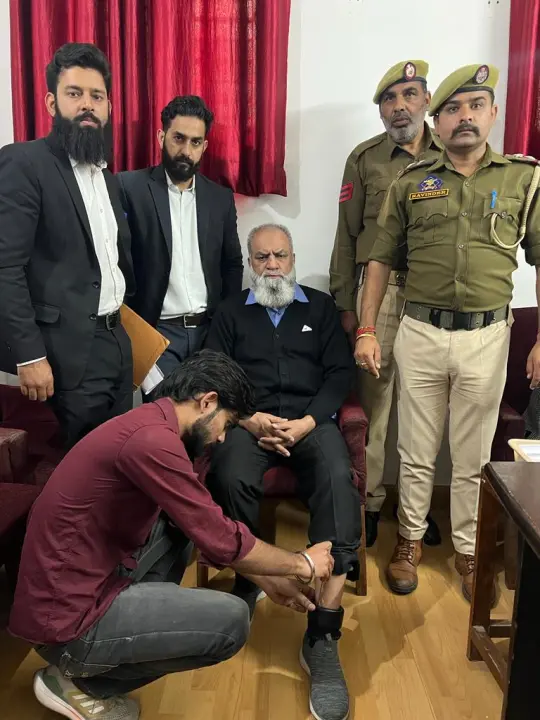Rights activists have slammed the Indian authorities for putting a Global Positioning System (GPS) tracker on the body of a man facing “terrorism” charges in occupied Jammu and Kashmir, Al Jazeera TV said in its fresh report.
According to Kashmir Media Service, the activists in interviews with Al Jazeera TV said, the black, square-shaped, water-resistant gadget, GPS anklet’ is a form of ‘virtual imprisonment’ and compro-mises the privacy of an individual who is facing trial but not convicted.
MohamadJunaid, a Kashmiri and assistant professor of anthropology at the Massachusetts College of Liberal Arts in the United States, while talking to Al Jazeera said, “We know from other contexts where this technology is used that GPS tracker is imprisonment by other means.
Given that it is used against undertrial accused, it relies on the logic that one is guilty until proven innocent. That is injustice”.
Junaid said the worst part is that any form of political dissent can now be seen as a violation of bail conditions. “That makes this new process mind and mobility control, a true techno dystopia,” he said.
Ravi Nair, executive director of the South Asia Human Rights Documentation Centre, argued that electronic tagging fitted to the body of a person may raise issues of fundamental liberties, such as freedom of movement or a person’s right to privacy.
“The state through tagging seeks to maintain public security, but on the other hand, those subjected to it must be accorded their fundamental rights,” he told Al Jazeera.He said the use of electronic monitoring raises a number of ethical, legal and practical issues. “The surveillance potential creates concerns of overregulation and infringement of human rights. The necessity for ensuring informed consent of those chosen to be subject to monitoring should be guaranteed and effective procedures established to deal with unethical or illegal practices,” he said. The fact that a private firm manufactures the GPS trackers is also a major concern, Nair said.
Al Jazeera report made a mention of an elderly man, the first victim of the India’s novel punishment and said, “For more than a week now, Ghulam Muhammad Butt, a 65-year-old resident of Srinagar, has been walking with the tracker around his ankle, which officials said has been introduced for prisoners out on bail.”
Butt, a lawyer, was a close associate of veteran Kashmiri leader Syed Ali Gilani. He was arrested at his Srinagar home in 2011 under the Unlawful Activities Prevention Act (UAPA) for allegedly financing the activities of the Hurriyat Conference. He was held in a jail in New Delhi and denied bail several times until last week when it was finally approved. —KMS










